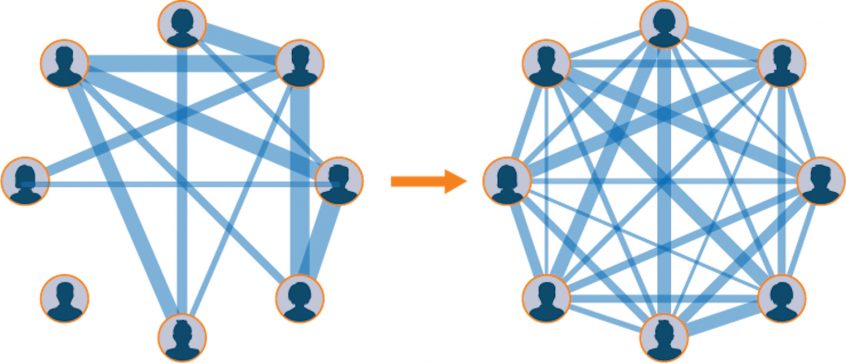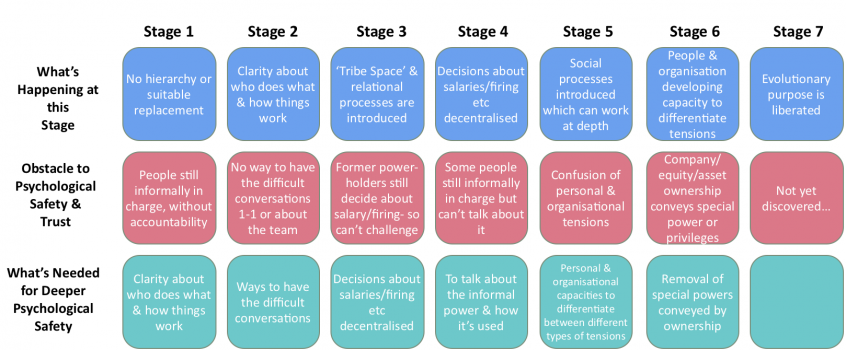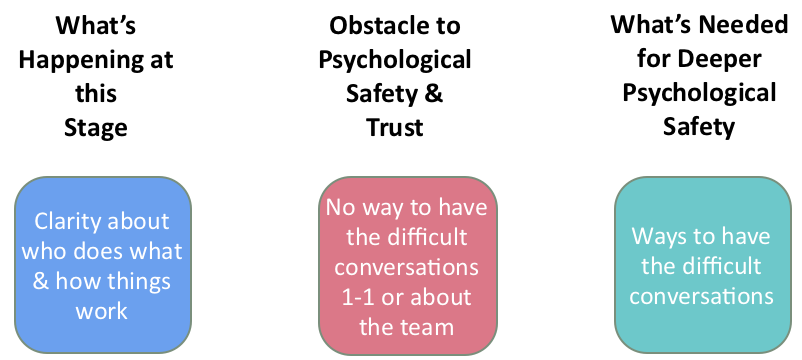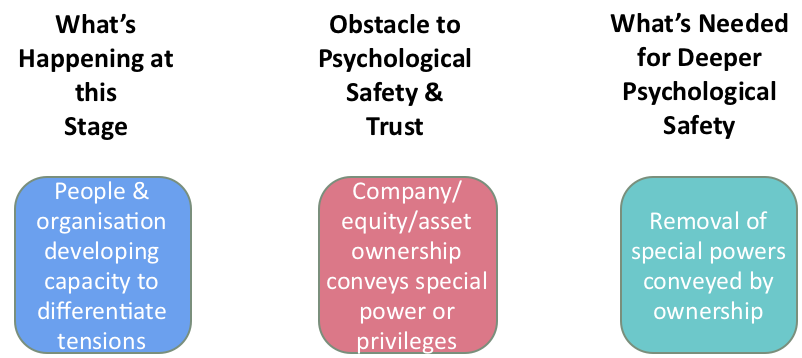INTRO PART 1: Seven Stages of Self-Organisation on the Road to Liberating Wholeness & Evolutionary Purpose
Transitioning an organisation into Teal—truly, deeply, and completely—is easier to read about, understand, and be inspired by than it is to actually do. This is new territory. It can be confusing, messy, and is littered with roadside casualties. I’ve been on a personal and organisational journey through this territory over the last 25+ years, in many organisations. It’s been interesting, … Read More
INTRO PART 2: The Road Ahead–How Psychological Safety, Power Shift, Self-Organisation & Teal Fit Together
Self-organisation—by one definition—is one of the three management breakthroughs of Teal. It requires a Power Shift away from hierarchical or informal shared power to distributed power. That shift requires a sense of psychological safety—without it, it will fail. Let me explain from the bottom up. Psychological Safety I am referring to psychological safety within the context of an organisation; not … Read More
Creating Space for People—Not Work
Roles Don’t Have Feelings, but People Do I was mixing up my expectations of roles and expectations of people. My colleague was not his role, but a person filling it—and while roles don’t have feelings, people do. While I was technically correct in that there were no formal expectations about how I would treat my colleague as a person, that’s … Read More
Decentralising Decisions About People/Org Relations
Power Shifts from Legacy Power-Holders to Transparent Processes The Compensation, Dismissal and Recruitment rows of this Self-Organisation Maturity Map from HolacracyOne show that as Holacracy/Self-Organisation practice matures, formal authority for People/Org Relations is decentralised and replaced with distributed authority, such as “distributed peer-to-peer or market-based process[es] encoded transparently in Governance”. This decentralisation of formal decision-making authority for People-Org Relations is … Read More
Relational Wholeness: Trust, Safety, and Depth
Getting Past the Glass Floor When the structures put in place through Stages 2–4 are functioning, we are in a position to implement social processes that challenge shadow power and invite trust, safety, and depth in the interpersonal relations among people energising an organisation’s roles. Without a structural foundation, any social processes we try to adopt will be rendered ineffective … Read More
Liberating Evolutionary Purpose
Closing the Loops by Legally Encoding the Separation of Operational, People, and Owner Contexts Where in Self Organisation do we look at issues of ownership, equity share, and distribution? How can such matters be handled clearly and equitably? These questions generally play a background role whilst people are getting on with the work, until suddenly they don’t. When an issue … Read More








